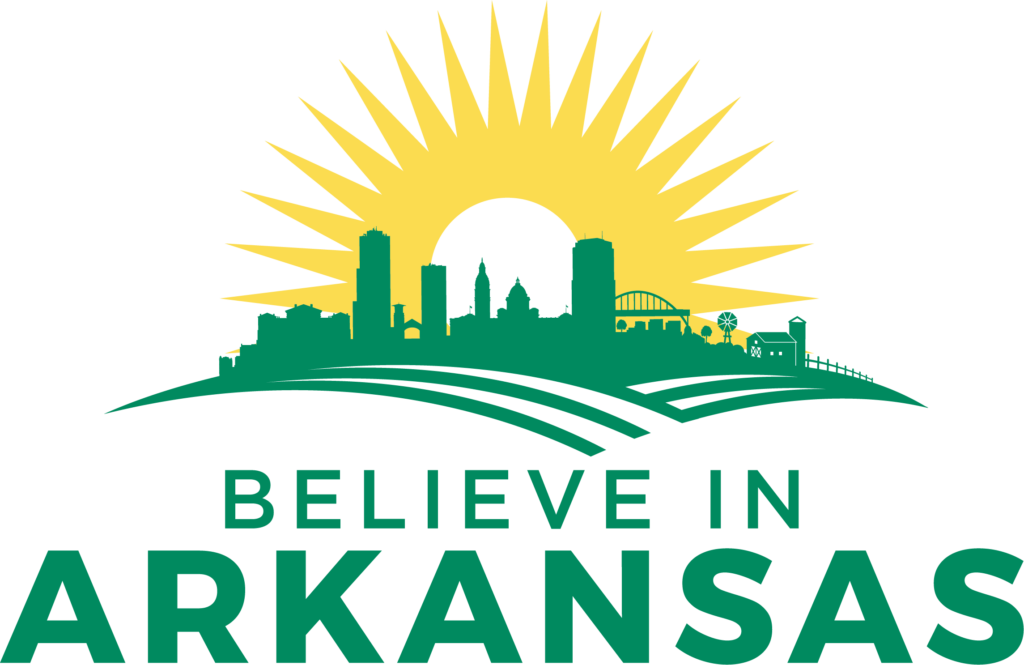

We at Americans for Prosperity-Arkansas work to break down barriers to opportunity that inhibit Arkansans from improving their lives and reaching their full potential.
We want to promote economic opportunity for all Arkansans, improving education for all students, expanding access to quality, affordable health care, and reforming our criminal justice system.
Keep Scrolling to read about our Believe in Arkansas Policy Plan!
Arkansas can practice fiscal responsibility by focusing funding on the government’s core responsibilities, protecting taxpayers’ hard-earned dollars from unnecessary spending, and keeping on a path to continued income tax reduction.
Dr. David Mitchell and Ryan Norris talk about the AFP/ACRE partnership, reviewing past successes and future challenges insuring economic freedom in Arkansas.
Arkansas can remove overburdensome licensing requirements that serve as barriers to entry for individuals trying to enter a profession. Arkansas can embrace universal recognition of licenses to bring working professionals across many career fields to the state, including military families.
Arkansans can be a pro-economic growth state where citizens do not have to seek a permission slip from the government to earn a living and provide for their families. Arkansas can cut burdensome red tape by adopting policies that make it easier for individuals to thrive and for businesses to start and succeed.
Freedom To Farm!! Ryan Norris speaks with Michael Harden, Vice President of Development at John Locke Foundation, and Matthew Nicaud, technology specialist with the Mississippi Center for Public Policy. They discuss the future of Agri-Tech and removing unnecessary barriers to food production and processing.
Can Arkansas be a business incubator state? Ryan’s guest is Ryan Nabil, a Research Fellow with the Center for Technology and Innovation at the Competitive Enterprise Institute a Free Market think tank.
“Esports” means a form of multiplayer competition using video games, primarily between competitive gamers, that includes the ability to perform in front of an audience, whether through an online platform, broadcasted on television, or at a physical event. Esports is not sports betting and should not be defined as gambling. Esports competitions should receive the same protections as fantasy sports and become one of the most innovative industries in our state. A policy that defines and protects esports would make Arkansas a leader in this educational and economically beneficial industry.
Open enrollment, where a parent can enroll their child in the public school of their choice, would give more education options to thousands of families who need them. Public schools should be mandated to publicly report their anticipated student enrollment, enrollment capacity, and have a transparent and unbiased process for determining which students will be enrolled.
Hear about the benefits of open enrollment from Jude Schwalbach, Policy Analyst for Reason Foundation, on the Believe In Arkansas podcast.
Provide an education credit for learning, wherever it occurs. Children learn through a variety of approaches and experiences: this includes learning in a traditional classroom and experiences far beyond the walls of a traditional school. Learn Everywhere policies create a path for students to earn course credits for these out-of-classroom learning opportunities.
Remove arbitrary seat-time rules and focus on content mastery. Most education systems are organized around specific requirements related to the number of hours (or even minutes) of instruction a student receives in a day, week, and school year. Instead, they should focus on mastering concepts and skills, regardless of time, place, and pace.
Make testing a seamless part of a child’s education experience—not the end focus of education. A persistent barrier to innovation in education is a focus on end-of-year summative tests that are based on traditionally defined courses. Innovative schools are designing assessment practices that value a broader set of skills, assess learning as it happens to inform instruction, and allow students to move on when they demonstrate mastery.
Hear about the issues and opportunities with education assessment reforms from Dr. Sarah McKenzie, the Executive Director of the Office for Education Policy at the University of Arkansas, on the Believe In Arkansas podcast.
To increase mental health care access for our youth, Arkansas should remove limits to lifesaving mental health services and encourage innovation in service delivery by repealing Certificate of Need (CON) laws for psychiatric residential treatment facilities and ending the moratorium on new residential care beds.
To increase mental health care access for our youth, lawmakers should repeal moratoriums on adding new care beds in psychiatric residential treatment facilities. Arkansas currently prohibits the Permit Commission from approving new residential care beds for mental illness.
To increase mental health care access, lawmakers should remove unnecessary barriers to licensing and pass universal recognition the licenses of mental health professionals from other states, so they are attracted to provide care in Arkansas as quickly as possible.
Identify and reduce the number of overly punitive, unnecessary, and unjust statutes carrying criminal penalties at the state level. The rightful role of criminal law is to promote public safety and should only be used in situations that further that goal.
Improve the pre-trial process for defendants. The U.S. Constitution ensures various rights for individuals accused of breaking the law in criminal proceedings, such as a speedy trial and adequate defense. Unfortunately, many of these essential guarantees are regularly undermined and defendants often find themselves waiting for significant periods of time for their day in court. This inflicts undue burdens on the accused, witnesses, and crime victims, while giving prosecutors unwarranted leverage in plea deals (the result of over 95% of cases).
Improve transparency and accountability in the collection of revenues from fines, fees, forfeitures, and traffic tickets. Many law enforcement agencies accept policies or duties that ultimately lead to poor outcomes and make line officers’ jobs more difficult because they provide budgetary support not being provided by our local leaders.
© 2025 AMERICANS FOR PROSPERITY. ALL RIGHTS RESERVED. | PRIVACY POLICY
Receive email alerts to learn how to get involved